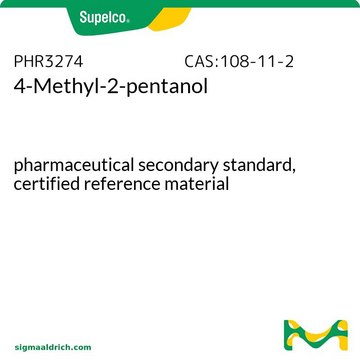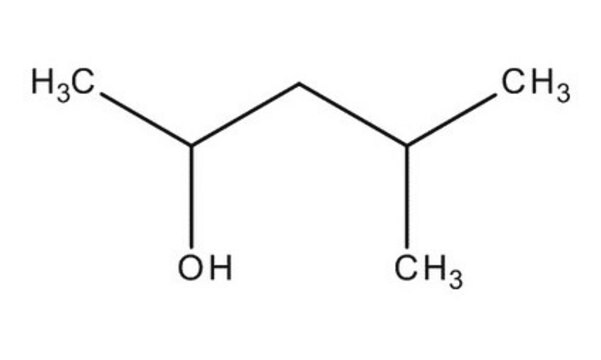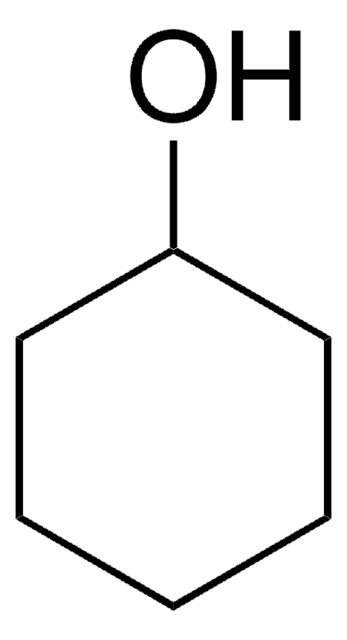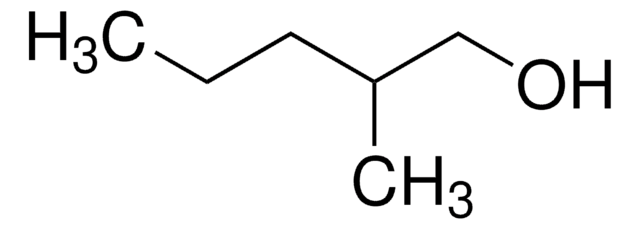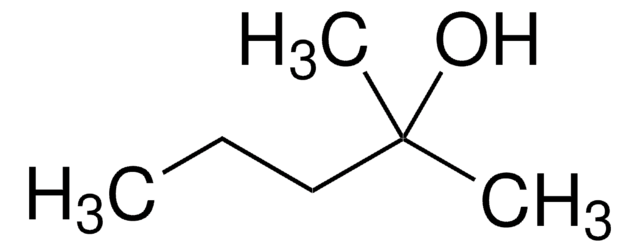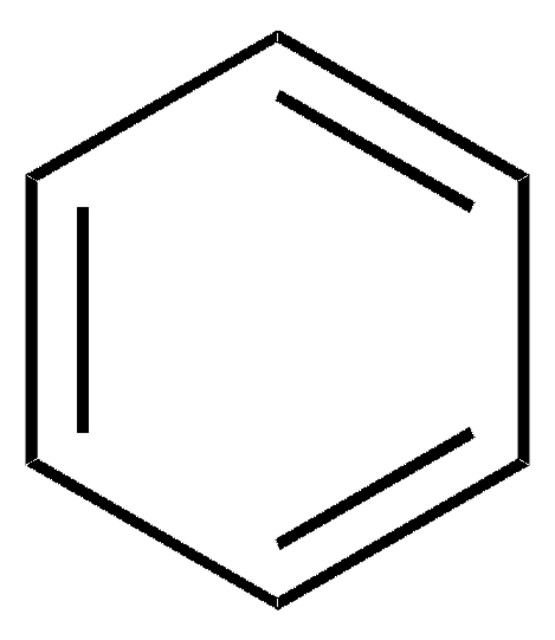109916
4-Methyl-2-pentanol
98%
Synonym(s):
3-MIC, Isobutyl methyl carbinol, MAOH, MIBC
About This Item
Recommended Products
vapor density
3.5 (vs air)
Quality Level
vapor pressure
3.7 mmHg ( 20 °C)
Assay
98%
expl. lim.
5.5 %
refractive index
n20/D 1.410 (lit.)
bp
132 °C (lit.)
mp
−90 °C (lit.)
density
0.802 g/mL at 25 °C (lit.)
functional group
hydroxyl
SMILES string
CC(C)CC(C)O
InChI
1S/C6H14O/c1-5(2)4-6(3)7/h5-7H,4H2,1-3H3
InChI key
WVYWICLMDOOCFB-UHFFFAOYSA-N
Looking for similar products? Visit Product Comparison Guide
Related Categories
General description
Application
Signal Word
Warning
Hazard Statements
Precautionary Statements
Hazard Classifications
Eye Irrit. 2 - Flam. Liq. 3 - STOT SE 3
Target Organs
Respiratory system
Storage Class Code
3 - Flammable liquids
WGK
WGK 1
Flash Point(F)
105.8 °F - closed cup
Flash Point(C)
41 °C - closed cup
Personal Protective Equipment
Regulatory Listings
Regulatory Listings are mainly provided for chemical products. Only limited information can be provided here for non-chemical products. No entry means none of the components are listed. It is the user’s obligation to ensure the safe and legal use of the product.
FSL
Group 4: Flammable liquids
Type 2 petroleums
Hazardous rank III
Water insoluble liquid
ISHL Indicated Name
Substances Subject to be Indicated Names
ISHL Notified Names
Substances Subject to be Notified Names
JAN Code
109916-1L:4548173959061
109916-18L:
109916-4L:4548173959078
109916-100ML:4548173959054
109916-25L:
109916-BULK:
109916-25ML:
109916-VAR:
109916-2.5L:
109916-5ML:
Choose from one of the most recent versions:
Already Own This Product?
Find documentation for the products that you have recently purchased in the Document Library.
Customers Also Viewed
Global Trade Item Number
| SKU | GTIN |
|---|---|
| 109916-100ML | 4061837018886 |
| 109916-18L | |
| 109916-4L | 4061837013829 |
| 109916-5ML | |
| 109916-1L | 4061838693273 |
Our team of scientists has experience in all areas of research including Life Science, Material Science, Chemical Synthesis, Chromatography, Analytical and many others.
Contact Technical Service

